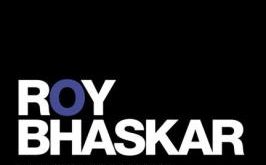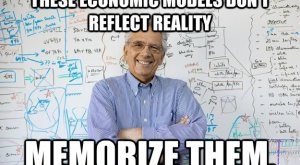RCTs — assumptions, biases and limitations Randomised experiments require much more than just randomising an experiment to identify a treatment’s effectiveness. They involve many decisions and complex steps that bring their own assumptions and degree of bias before, during and after randomisation … Some researchers may respond, “are RCTs not still more credible than these other methods even if they may have biases?” For most questions we are interested in,...
Read More »1855 — the birth of causal inference
1855 — the birth of causal inference [embedded content] If anything, Snow’s path-breaking research underlines how important it is not to equate science with statistical calculation. All science entail human judgement, and using statistical models doesn’t relieve us of that necessity. Working with misspecified models, the scientific value of statistics is actually zero — even though you’re making valid statistical inferences! Statistical models are no...
Read More »Wann Wissenschaft wahr ist
Wann Wissenschaft wahr ist [embedded content]
Read More »The limits of extrapolation in economics
The limits of extrapolation in economics There are two basic challenges that confront any account of extrapolation that seeks to resolve the shortcomings of simple induction. One challenge, which I call extrapolator’s circle, arises from the fact that extrapolation is worthwhile only when there are important limitations on what one can learn about the target by studying it directly. The challenge, then, is to explain how the suitability of the model as a...
Read More »Do economic models actually explain anything?
Do economic models actually explain anything? One of the limitations with economics is the restricted possibility to perform experiments, forcing it to mainly rely on observational studies for knowledge of real-world economies. But still — the idea of performing laboratory experiments holds a firm grip of our wish to discover (causal) relationships between economic ‘variables.’ If we only could isolate and manipulate variables in controlled environments, we...
Read More »Les théorèmes d’incomplétude de Gödel
Les théorèmes d’incomplétude de Gödel [embedded content]
Read More »Roy Bhaskar
What properties do societies possess that might make them possible objects of knowledge for us? My strategy in developing an answer to this question will be effectively based on a pincer movement. But in deploying the pincer I shall concentrate first on the ontological question of the properties that societies possess, before shifting to the epistemological question of how these properties make them possible objects of knowledge for us. This is not an arbitrary order of...
Read More »Minimal realism — much ado about nothing
Minimal realism — much ado about nothing To generalise Mäki’s distinction between realism and realisticness, someone who believes that economic theories must or should include unrealistic assumptions is not necessarily a non-realist in the broader sense of philosophical realism: “A realist economist is permitted, indeed required, to use unrealistic assumptions in order to isolate what are believed to be the most essential features in a complex situation …...
Read More »The explanation paradox in economics
The explanation paradox in economics Hotelling’s model, then, is false in all relevant senses … And yet, it is considered explanatory. Moreover, and perhaps more importantly, it feels explanatory. If we have not thought much about Hotelling’s kind of cases, it seems that we have genuinely learned something. We begin to see Hotelling situations all over the place. Why do electronics shops in London concentrate in Tottenham Court Road and music shops in...
Read More »The logic of economic models
The logic of economic models Analogue-economy models may picture Galilean thought experiments or they may describe credible worlds. In either case we have a problem in taking lessons from the model to the world. The problem is the venerable one of unrealistic assumptions, exacerbated in economics by the fact that the paucity of economic principles with serious empirical content makes it difficult to do without detailed structural assumptions. But the worry...
Read More » Heterodox
Heterodox







